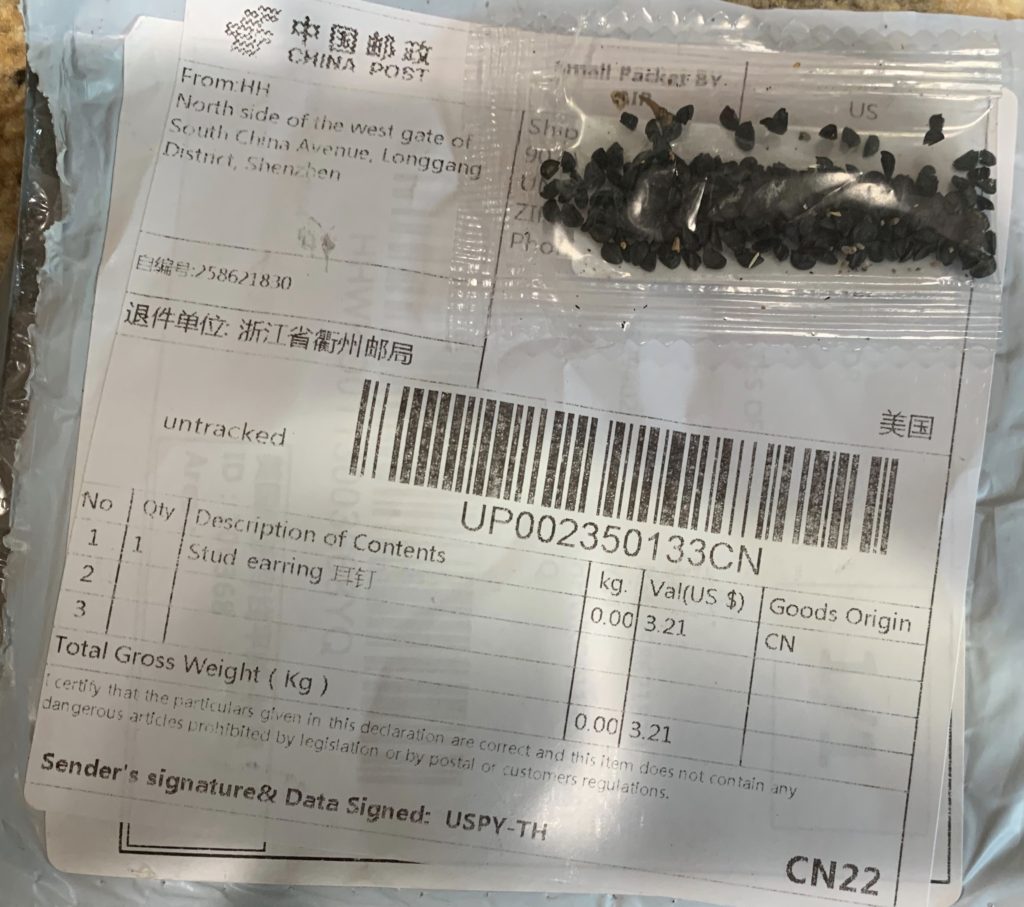Seed packages that Minnesotans didn’t order are still coming into the state in steady numbers from China. Many of the seeds are non-invasive species. However, that doesn’t mean they can’t carry some kind of a pest or disease with them.

Reports are still coming into the Minnesota Department of Agriculture (MDA) that say citizens continue getting unsolicited seed packages in the mail. To date, over 700 Minnesotans found the seeds in their mailboxes and reported it to the MDA.
The packages contain a variety of seeds. Seed analysts at the MDA Laboratory say some of the seeds are cosmos, radish, mung bean, juniper, basil, cucurbit, and zinnia. Seeds like these are not invasive plants. However, they can carry disease and pests can hide in packaging. The unsolicited seeds likely haven’t gone through proper inspection channels to enter the country legally. The labels typically say something like jewelry is inside.
The MDA is working with the United States Department of Agriculture (USDA) on the issue. Minnesota is sending all the collected seeds to the USDA for additional identification and destruction. Federal officials are investigating the source of the seeds, and the USDA is currently referring to the situation as a “brushing scam.” In that type of scam, people get unsolicited items from a seller who then posts false customer reviews to boost sales. Their latest statement on the seed packages can be found here.
Those receiving the packages have indicated they either never made an online seed order or they purchased seeds online earlier in the year but never got them. Their order information indicates it is still unfulfilled.
Minnesotans should take the following steps to deal with unsolicited packages of seeds.
- Save the seeds and the package they came in, including the mailing label.
- Do not open the seed packets.
- Do not plant any of the seeds.
- In case the package is already open, place all materials (seeds and packaging) into a tightly-sealed plastic bag.
- Contact the MDA through this form (mda.state.mn.us/unlabeledseeds).
If you have planted the seeds you received, please destroy any plants that have germinated. Plants and soil aren’t eligible for most trash collection. However, in this unusual situation, pull up the plants, double bag them and the surrounding soil, and dispose of everything in the trash. Do not compost the seeds, plants, or soil. Please notify the MDA if you have disposed of any seeds or plants through our contact form.
You should always buy seeds from a reputable source. Minnesota law says all seeds sold in the state need correct labels. People selling seeds need to have a permit from the MDA. You can look up seed permit holders on the MDA website. Never plant unlabeled or unknown seeds.


